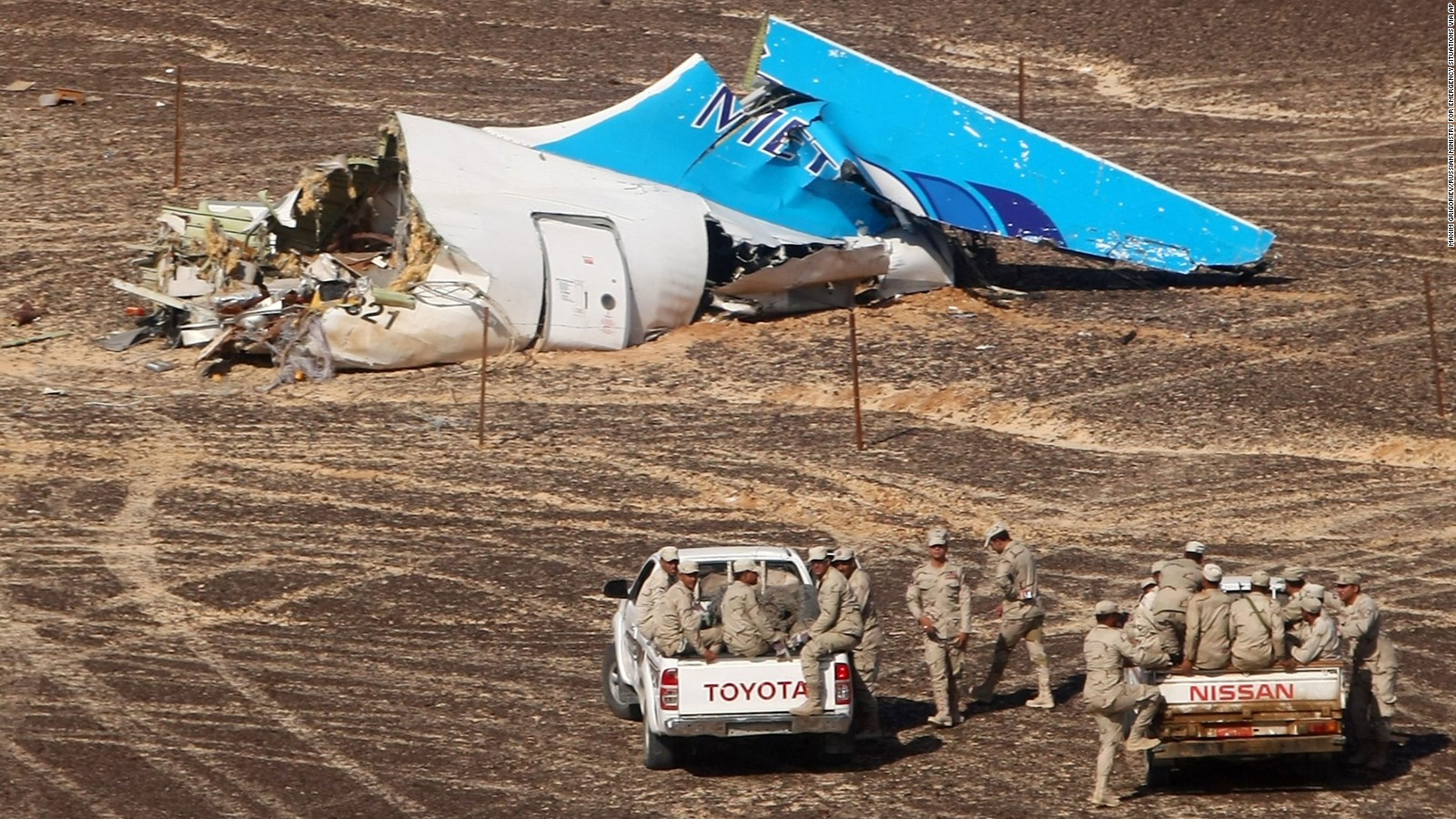The Thomson Airways jet with 189 people aboard took off from London and was headed to the Red Sea resort, according to The Guardian.
It
said the jet came within 1,000 feet of a missile in its trajectory, and
went on to land safely on August 23. The paper said passengers were
kept in the dark about the incident.
A
UK government spokesman confirmed the media reports, saying an
investigation determined the rocket did not come from militants.
"We
investigated the reported incident at the time and concluded that it
was not a targeted attack and was likely to be connected to routine
exercises being conducted by the Egyptian military in the area at the
time," the spokesman said in a statement.
Crashed Russian airliner
The
revelation comes days after a Russian passenger jet crashed in the
Sinai region last weekend, killing all 224 people aboard. U.S. and UK
officials have raised suspicion about the possibility of a bomb aboard
the jet, an assertion Egypt has denied.
Egyptian
aviation officials plan to hold a news conference Saturday amid dueling
theories on what caused the Russian passenger jet to crash.
European
investigators who analyzed the two flight recorders from the Russian
Metrojet plane that crashed in Egypt are saying the crash is not an
accident, CNN affiliate France 2 reported Friday.
The investigators said the cockpit voice recorder of Metrojet Flight 9268 shows
an explosion and the flight data recorder confirms the explosion is not
accidental -- there is no sign of mechanical malfunction during the
initial part of the flight, France 2 reported.
Everything
is fine during the first 24 minutes, then in a fraction of a second
there is a blackout and no more cockpit conversation, convincing
investigators there was a bomb on board, according to France 2.
Experts weigh in
CNN
Aviation Analyst Richard Quest said there would have been different
data on the black boxes if there was a catastrophic failure than if
there was an explosion. The key is what happened just before the data
suddenly stops, he said.
"It's this
split second, and it's a millisecond, where you hear an explosion of
some description," he said. "And you see all the parameters (on the
recorders) go haywire before the power is completely lost. If this
report is accurate, (investigators) have now analyzed that ... heard it
and they can identify it."
If the plane had broken apart due to structural failure, there would have been more noise -- and for a longer time, he said.
Egypt's announcement
Russian
President Vladimir Putin on Friday suspended Russian air traffic with
Egypt until the cause of the crash can be determined, the Kremlin said.
The
United States and Britain shared their intelligence with Russia before
Putin decided to suspend flights, Kremlin spokesman Dmitry Peskov told
CNN's Matthew Chance.
Putin spoke with Egyptian President Abdel Fattah el-Sisi about the security situation in Egypt.
"The
two leaders agreed to strengthen cooperation between the relevant
security authorities in the two countries," el-Sisi's office said.
Russia's resistance
Russia previously resisted the theory that a bomb brought down the airliner.
The
jet, carrying mostly Russian families returning from Red Sea vacations,
was 23 minutes into its flight Saturday from Sharm el-Sheikh to St.
Petersburg, Russia, when it disappeared from radar over Egypt's Sinai
Peninsula. A U.S. satellite detected a heat flash over Sinai. The plane
broke apart and fell 30,000 feet. All aboard died.
Russia's
about-face buttressed a theory about the cause of the crash. As
investigators pick through the rubble of the Russian airliner, and as
Western officials sift through their own intelligence reports, some have
suspected Flight 9268 was brought down by a bomb planted in its hold.
Some also think the bomb may have been smuggled on board in the Egyptian resort of Sharm el-Sheikh, where the flight departed.
Bomb theory
The
bombing theory emerged Wednesday, when Britain suspended flights from
Sharm el-Sheikh to the United Kingdom because of security fears.
It
became more pronounced when it was articulated by British Prime
Minister David Cameron and U.S. President Barack Obama, though neither
expressed it as a certainly. Cameron said it was "more likely than not" that the cause of the crash was an onboard bomb. Obama said it was "certainly possible."
On
Friday, the BBC quoted UK intelligence officials as saying the plane
may have been brought down by a bomb smuggled on board by someone
working at the airport in Sharm el-Sheikh. The BBC said the intelligence
came from "intercepted communication between militants in the Sinai
Peninsula."
Egyptian officials publicly
continue to push back against the likelihood of a bombing -- perhaps
concerned about the country's crucial tourism sector -- but a high-level
Egyptian official who declined to be named due to the sensitivity of
the matter said Friday the possibility of a bomb is "a theory we are not
discarding."

No comments:
Post a Comment